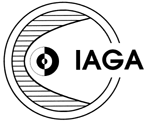
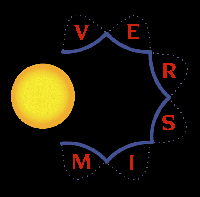




IAGA/URSI JOINT WORKING GROUP on:
| V . E . R . S . I . M |
 |
|
| VLF/ELF Remote Sensing of Ionospheres and Magnetospheres | ||
| 6th VERSIM workshop 2014 | ||
| 20-23 January 2014, University of Otago, Dunedin, New Zealand |
The workshop has happened. Thanks to the attendees! The 6th VERSIM Workshop 2014 Programme and the 6th VERSIM Abstract and Programme Book is available online.
Venue, timing and format
University of Otago, Dunedin, New Zealand hosted by the Space Physics Research Group.
The meeting will be held on the ground floor of Otago's Department of Physics, located in the Science 3 building at the north-west corner of the campus on the corner of Cumberland and St. David Streets.
The formal parts of the workshop will span 3.5 days (Monday through to late on Thursday). We will follow the well establish VERSIM workshop tradition of having longer talks and time for questions and discussion.. Our social events includes an Icebreaker on the Monday evening, an excursion on the Tuesday afternoon, and a conference dinner on the Wednesday night (note that this has changed since early November, when we realised that many people were leaving by Thursday night). The excursion to be out to Otago Peninsula, to see some of the local wildlife.
The 6th VERSIM Workshop 2014 Programme is now available online.
Important Dates
Cancellation Policy: Cancellations received before 30 October 2013 will be
refunded, less 25% of the total. Refunds after this date will be at the
discretion of the committee. All refunds will be processed after the workshop
takes place.
Registration Fees
Early-bird registration fee is NZ$450
Normal registration fee is NZ$500
Late registration fee is NZ$650
Early Career researchers should be aged
under 35 (in line with the definitions used by URSI).
Student/Early Career researcher Early-bird and Normal registration fee is
NZ$250.
Student/Early Career researcher Late registration fee is NZ$450.
The fees above will include the Conference Dinner and Excursion, Lunches on each day
of the Workshop, the Ice breaker function, as well as morning and afternoon
teas. Only those who have paid the registration fees may attend the scientific
sessions of the workshop.
Accompanying Person fee for the conference dinner $100
Childrens fee for the conference excursion $50 (note children are
5-15 years)
Note that we have set up the online registration so you can register your
accompanying person separately from yourself (if you wish). In that case you
would register yourself using a "work" credit card, and register and pay for
accompanying people and children's fees with a different credit card (if this
suits you).
Abstract Submission
(deadline 30 October 2013)
We are accepting abstracts (preferably in plain text format) through the
email versim14@lists.otago.ac.nz. We will confirm the arrival of all
abstract submissions within a few days of your email. Participants may submit up
to TWO abstracts for Oral Presentation, and an unlimited number of Poster
Presentations. However, the inclusion of the abstract in the workshop programme,
and the nature of the presentation
will be determined by the Scientific Programme Committee and the Local
Organising Committee.
An example of the basic abstract
format is available as a PDF file although note we are expecting a plain
text abstract. Note that the abstract should include the authors,
affiliations, and 200-300 words. We also request that below the abstract
submitters include the contact details for the presenting author.
Abstracts will only be included in the programme and abstract book if the
presenting author has completed registration (including paying the registration
fee).
Accommodation
There are a lot of accommodation options in Dunedin, which has a vibrant tourist
industry. Participants for the VERSIM14 workshop should organize their own
accommodation in the North Dunedin area (i.e., close to the University), unless
they want to stay at a student hall of residence. In that case we will arrange
the booking and you should contact us (more details below). The University has
available a
list of
nearby accommodation providers to aide your selection. Note that the
colleges listed on this webpage will not have capacity during our workshop, look
below for a college residential option.
We understand that you will know your
accommodation needs best and thus you are in the best position to to arrange
what suits. However, some participants may prefer to stay at a Residential
Colleges (i.e., a student "hall of residence") which is on the edge of the
campus and can provide a practical lower cost option. We have arranged bed and
breakfast-style accommodation (generally with shared facilities) at
University College (UniCol), which is a 5minute walk
to the Physics Department (see map at this
link). The rates are given below. Bookings for UniCol should be made by
emailing versim14@lists.otago.ac.nz.
We will need to know your arrival and departure dates and times, gender, any
special dietary needs and any other issues (i.e., mobility). Bookings for UniCol
need to be made with us by 1 December 2013. Single $85.00 pp/n (max 1) B&B Shared bathroom facilities Double $105 p/n (max 2) B&B Shared bathroom facilities Penthouse $110 p/n (max 2) B&B Ensuite bathroom Apartment $150 p/n (max 3-4) B&B Ensuite bathroom B&B = Bed and breakfast
pp/n = per person, per night.
Financial support Early Career researchers should be aged
under 35 (in line with the definitions used by URSI). Scientific Programme Committee János
Lichtenberger (Eötvös University, Budapest, Hungary)
Local
Organising Committee From Physics Dept, University of Otago, New
Zealand: The LOC also includes: Useful information Many countries have visa-free status -
find a list
here. Immigration NZ provides detailed information on visa requirements on
their
website. Participants who are not from a visa-free country will need to
apply for a Vistors Visa's from
Immigration New Zealand, using the Visitor
Visa Application (INZ
1017). Obviously, this will need to be done
well in advance of the meeting! Those participants requiring a visa should write
to Craig Rodger to get a letter of invitation - you should do this after
having submitted an abstract to the VERSIM workshop.
ImmigrationNZ have indicated that
the more information we can supply to support the visa application, the more
smoothly it will probably go - one example suggested was to mention if people
have already paid the registration fee to attend. How do I get to Dunedin? The main international entry points for New Zealand are the airports in
Auckland, Christchurch and Wellington. Most participants are likely to be flying
into Auckland, and then flying onwards south to Dunedin. However, international
flights from Dunedin are available to Sydney and Brisbane with Virgin Australia
and note that Christchurch and Queenstown (both in the South Island) also
receive international flights from as far afield as Dubai and Singapore.
Domestic to/from Dunedin flights are readily available to destinations throughout New Zealand. Air New Zealand flies
into Dunedin airport regularly from multiple domestic destinations while Jet
Star flies daily from Auckland. Air New Zealand:
www.airnewzealand.co.nz Virgin Australia:
http://www.virginaustralia.com/au/en/ Jet Star:
http://www.jetstar.com/nz/en/home Dunedin Airport: www.dnairport.co.nz New Zealand's environment and agricultural industry is the backbone of our
economy, and the NZ Ministry of Primary Industries takes any threats to our
biosecurity very seriously. New Zealand has one of the strictest approaches to
biosecurity in the world, which you will encounter on arrival into the country.
The simplest thing to do (if possible) is to bring no food with you, or use the
disposal bins in the airport before you get to the screening points. Take care
to complete your Passenger Arrival Card carefully and completely, and if doubt
about any item you are carrying, declare it! What is food? If it goes into your
mouth, its food. This could be seeds, nuts, snacks, drinks, etc, etc. Be
careful! Find out further information at the
Biosecurity website. We recommend that you purchase New Zealand currency at the airport where you
first arrive in New Zealand, or have a plan so you don't need cash until you get
to the city and can go to one of the banks there. There are limited currency
exchange facilities at Dunedin Airport. Note that credit cards are widely
accepted in New Zealand. Dunedin Airport is about 25-30min drive from the City. There is no bus
service or other public transport between the airport and Dunedin. Shuttles
(shared taxi vans) and Taxi's are available from outside the airport for all
flights. You can find out information on typical prices and some of the
operators at the airport from the
Dunedin Airport Transport
webpage. If you would like to pre-book (and pre-pay) for a shuttle or taxi,
or check the likely costings, you can use the
Air New Zealand Taxi Webpage. Note we will not be organising transfers
to and from the airport. Central Dunedin is flat and easily walkable (although most people live up in
the hills). The university is located in the northern part of the city. Map of Dunedin City:
www.zoomin.co.nz/map/dunedin
Sponsors
The 6th VERSIM workshop has received financial support from the
International Union of Radio Science (URSI)
Commission H and
Commission G. We have
also received "moral support" from
Commission E.
We have received financial support from the International Association of
Geomagnetism and Aeronomy (IAGA), which includes the chance to put forward a
young scientists (under 30 years old in 2013) for an IAGA Young Scientist Prize based on
the best scientific presentation at our workshop.
We also wish to thank the Air Force Office of Scientific Research, Asian Office
of Aerospace Research and Development for their contribution to the success of
this conference.
Early-bird registration fee closes 15 September 2013 NOTE that the financial deadlines are set in stone and we have been informed we cannot change them. Abstract submission closes 15 October 2013 (deadline extended to 30
October 2013)Normal Registration closes 30 October 2013 Bookings for accommodation at Unicol Hall of Residence close 1 December 2013
Late Registration closes 15 December 2013 (note there will be no "on site"
registration facility)
Registration is
now being accepted online. You will need to pay using a credit card.
Accompanying Person fee for the conference excursion $120
[we also hope to run a small accompanying persons programme with some walks
around the city and optional visits to some notable sites.
We hope that accompanying persons and any associated children will be able to
attend the icebreaker function at no cost - this will be confirmed once
registration closes].
Registration is
now being accepted online. You will need to pay using a credit card.
p/n = per night for the room and should not exceed the maximum number of
people as indicated.
We have a limited number of rooms in each category available at UniCol, which
will be allocated on a first-come, first-served basis. Note all rates are GST
inclusive.
The organisers have received sponsorship from URSI to support Early-career
scientists and some limited support from IAGA to support participants from
developing countries. This early career sponsorship is being used to subsidise the registration fee for
students and early career researchers (who will have full
access to the scientific and social programme). If we have remaining
sponsorship money we hope to provide partial accommodation support for students,
early-career scientists or scientists with demonstrated need. We have not
received sufficient sponsorship to support travel costs. To apply: 1)
register, 2) submit your abstract, 3) send a message to Craig Rodger (crodger at
physics.otago.ac.nz) with the following information:
Craig J. Rodger (University of Otago, Dunedin, New Zealand)
Jyrki Manninen (Sodankylä Geophysical Observatory, Sodankylä, Finland)
David Shklyar (Institute of Space Research, Moscow, Russia)
Jacob
Bortnik (UCLA, USA)
Ondřej Santolík (Institute of Atmospheric Physics and Charles University,
Prague, Czech Republic)
Yoshiharu Omura (Kyoto University, Kyoto, Japan)
Jean-Pierre Raulin (Center for Radio Astronomy and Astrophysics Mackenzie,
Mackenzie Presbyterian University, São Paulo, Brazil).
Chaired by
Assoc. Prof. Craig J. Rodger
Assoc. Prof. Neil R. Thomson
Dr. Ian Whittaker
Mr. Aaron Hendry
Ms. Kathy Cresswell-Moorcock
Mr. Jason Neal
Dr. János Lichtenberger (Eötvös University, Budapest, Hungary)
Do I need a visa to visit New Zealand?
Biosecurity is strict when entering New Zealand. This means be very
careful about bringing in any food product!
Currency Exchange
Getting from Dunedin Airport (DUD) into Dunedin City
Getting Around Dunedin City
Map of the university:
http://www.otago.ac.nz/about/otago042558.pdf or try the
Map for Mobile
Devices like Smart Phones and iPADs.
Organisers


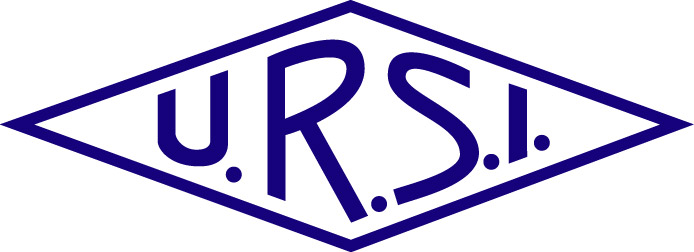

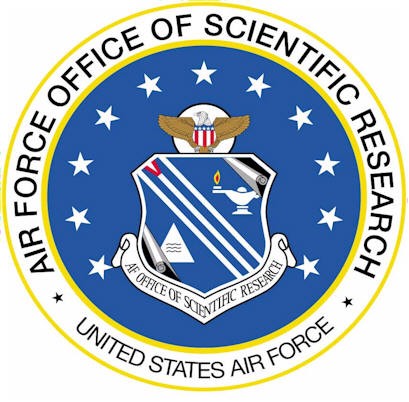
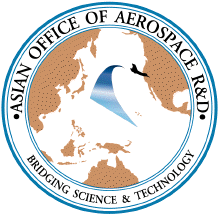
Further information
Contact the VERSIM-2014 Local Organising
Committee:
email
versim14@lists.otago.ac.nz
[This email is being monitored by the chair of the LOC, Craig J.
Rodger and also by Dr. Ian Whittaker]
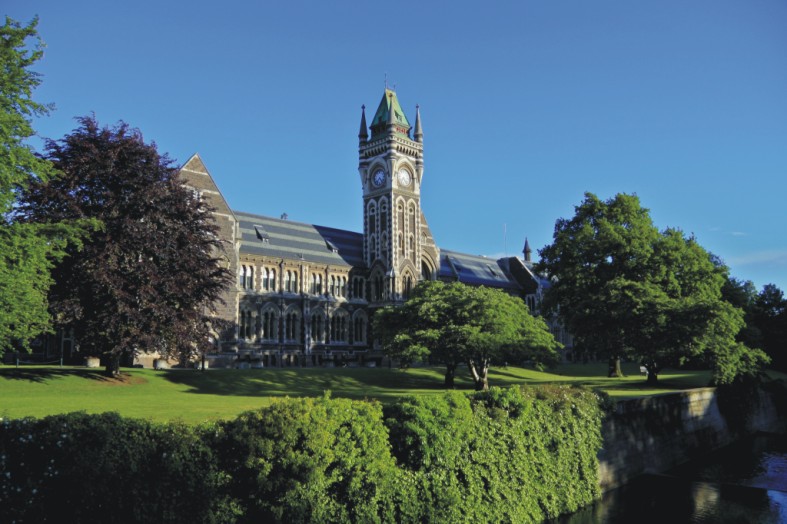 University of Otago clocktower building - image courtesy of Bonar Carson
University of Otago clocktower building - image courtesy of Bonar Carson
This document is maintained by C .J. Rodger and was last
updated 27 January 2014.